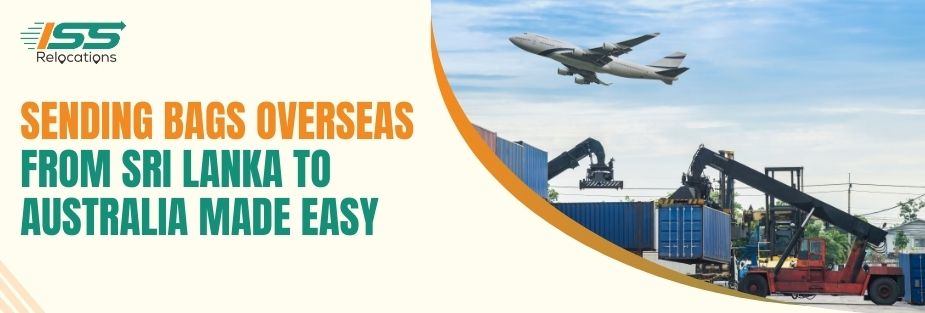
The Pros and Cons of International Relocation: What You Need to Know
International relocation is the process of moving from one country to another for personal or professional reasons. It involves leaving behind familiar surroundings and adapting to a new environment with a different culture, language, and way of life. While international relocation can offer many benefits, it can also be challenging and stressful. In this article, we will explore the pros and cons of international relocation and provide tips on how to prepare for a successful move.
Discover Pros & Cons!
Get essential knowledge for a confident international relocation
Pros of International Relocation
A. Career Advancement
Opportunities for Higher Salaries: Many people relocate to pursue better job opportunities and higher salaries. Some countries offer more competitive salaries and benefits packages than others, which can lead to a significant boost in income.
Exposure to New Markets: Relocating to a new country can provide exposure to new markets and industries, leading to new opportunities for professional growth and advancement.
B. Cultural Immersion
Learning New Languages: Moving to a new country provides an excellent opportunity to learn a new language. Learning a new language can be challenging but can also be rewarding and help to improve communication skills.
Experiencing New Cultures: Living in a new country can offer a unique opportunity to experience a different culture, cuisine, and way of life. It can broaden one’s perspective and provide a new level of cultural understanding.
C. Adventure and Personal Growth
Opportunities to Explore New Places: Relocating to a new country can offer opportunities to travel and explore new places, which can be exciting and rewarding.
Challenging Oneself to Adapt to New Environments: Adapting to a new environment can be challenging but can also be an opportunity for personal growth and development. It can help to build resilience, flexibility, and adaptability.
Cons of International Relocation
A. Culture Shock
Dealing with Unfamiliar Customs and Traditions: Moving to a new country can be overwhelming, and adjusting to unfamiliar customs and traditions can be challenging.
Language Barriers: Language barriers can create communication difficulties and can make it challenging to navigate day-to-day life in a new country.
B. Financial Considerations
Cost of Living Differences: Cost of living differences can be significant when moving to a new country. Some countries may have a higher cost of living, making it challenging to maintain the same standard of living.
Loss of Income for Trailing Spouse: When one partner relocates for a job opportunity, the other partner may face challenges finding employment in the new location, resulting in a loss of income.
C. Family and Social Connections
Separation from Family and Friends: Moving to a new country can mean leaving behind family and friends, which can be emotionally challenging.
Difficulty in Making New Social Connections: It can be challenging to make new social connections in a new country, particularly if there are language or cultural barriers.
Have Questions? Call!
Factors to Consider Before Relocating Internationally
A. Personal Circumstances
Family Situation: It’s important to consider how international relocation will impact the family unit. Will children need to switch schools? Will a partner need to leave behind their job?
Health Concerns: Health considerations should also be taken into account. Some countries may have different healthcare systems or require specific vaccinations.
B. Career Opportunities
Job Prospects in the New Location: Researching job prospects in the new location is essential. Is there a high demand for your skillset? What is the job market like in the new location?
Potential for Career Growth: Consider the potential for career growth and advancement in the new location.
C. Financial Considerations
Cost of Living: Researching the cost of living in the new location is essential to determine whether it is financially feasible to relocate. The cost of living can vary greatly from one location to another, and it’s important to factor in the cost of housing, transportation, food, healthcare, and other expenses. This will give you an idea of how much you’ll need to earn to maintain your standard of living in the new location.
Salary and Benefits Package: It’s important to understand the salary and benefits package being offered by your employer in the new location. This should be compared with your current package to determine whether the move will result in a financial gain or loss. Factors to consider include taxes, retirement benefits, health insurance, and other perks that may be offered.
D. Cultural Differences
Language Barriers: If you’re relocating to a location where the primary language is not one that you speak, you may face communication challenges. Learning a new language takes time and effort, and it’s important to consider this when deciding whether to relocate. Knowing the local language can also help you to better understand the culture and make social connections.
Adaptability to New Customs and Traditions: Relocating to a new location may require adapting to new customs and traditions. This can include different ways of greeting people, religious practices, and cultural norms. It’s important to be open-minded and willing to learn about the new culture, which can help you to integrate better and avoid misunderstandings.
How to Prepare for an International Relocation
A. Researching the New Location
Cost of Living: Researching the cost of living in the new location is important, as mentioned earlier. This will give you a realistic idea of how much you’ll need to earn to maintain your standard of living. You can use online resources to compare the cost of living between your current location and the new location.
Healthcare System: Researching the healthcare system in the new location is important to ensure that you have access to quality medical care. You should find out about the availability of doctors, hospitals, and medical facilities, as well as the cost of healthcare.
B. Obtaining Necessary Visas and Permits
Understanding Immigration Laws: Depending on the country you’re relocating to, you may need to obtain a visa or work permit. It’s important to understand the immigration laws of the new location and ensure that you have the necessary documentation to legally live and work there.
Securing Work Permits: If you’re relocating for work, your employer may assist you with obtaining a work permit. However, it’s important to understand the requirements and ensure that you have the necessary documentation.
C. Finding a Reliable Relocation Company
Researching Companies: If you’re using a relocation company, it’s important to research different companies to find one that is reliable and trustworthy. You can use online resources to read reviews and check references.
Checking for Reviews and References: It’s important to check reviews and references to ensure that the relocation company has a good reputation and can be trusted to handle your belongings with care.
Conclusion
Relocating internationally can offer many benefits, such as career advancement, cultural immersion, and personal growth. However, there are also cons to consider, such as culture shock, financial considerations, and family and social connections.
It’s important to carefully consider the pros and cons of international relocation and to plan accordingly. This includes researching the new location, obtaining necessary visas and permits, and finding a reliable relocation company. International relocation can be a daunting experience, but with careful consideration and planning, it can also be a rewarding one. By taking the time to research and plan, you can ensure a smoother transition and a successful relocation.
Plan Stress-free Move with Top Moving Company in UAE - ISS Relocations

Frequently Asked Questions
What are the pros and cons of moving to a different country?
Moving abroad offers opportunities for career growth, cultural exposure, and a better quality of life, but challenges include language barriers and adjusting to a new environment. ISS Relocations helps you navigate the pros and cons of international relocation by offering expert moving services that simplify the transition.
What are the pros and cons of working internationally from UAE?
Working internationally from the UAE provides tax benefits, global networking, and career advancement, but it may come with visa complexities and cultural adjustments. ISS Relocations ensures a seamless relocation experience, handling all logistics and visa requirements efficiently.
What are the advantages and disadvantages of a company relocation?
A company relocation can open new markets and improve efficiency but may disrupt operations and require significant planning. ISS Relocations specializes in corporate relocations, ensuring minimal downtime and a smooth transition for businesses and employees.
What is the best country to relocate to?
The best country to relocate to depends on career prospects, quality of life, and personal preferences. Countries like Canada, Australia, and the UAE are popular choices. ISS Relocations provides tailored relocation services to help individuals and businesses make informed decisions.
Is it good to work internationally for UAE?
Yes, working internationally from the UAE allows professionals to expand their expertise, build global networks, and benefit from tax-free earnings. ISS Relocations simplifies the relocation process, ensuring a stress-free experience when working abroad.
What are the pros and cons of immigration?
Immigration offers better job opportunities, healthcare, and lifestyle but involves cultural adaptation and bureaucratic processes. ISS Relocations expertly manages the pros and cons of international relocation, making immigration smooth and hassle-free.
What are the advantages of living away from family?
Living away from family fosters independence, career growth, and exposure to new cultures but may lead to homesickness. ISS Relocations provides personalized relocation support to help individuals adjust to new environments with ease.
Moving Company - Recent Blog
Stay informed and prepared for your next move with our latest blogs on moving services in the UAE. From expert packing tips to international relocation guides, ISS Relocations brings you up-to-date insights to make your moving experience smoother, safer, and stress-free.










